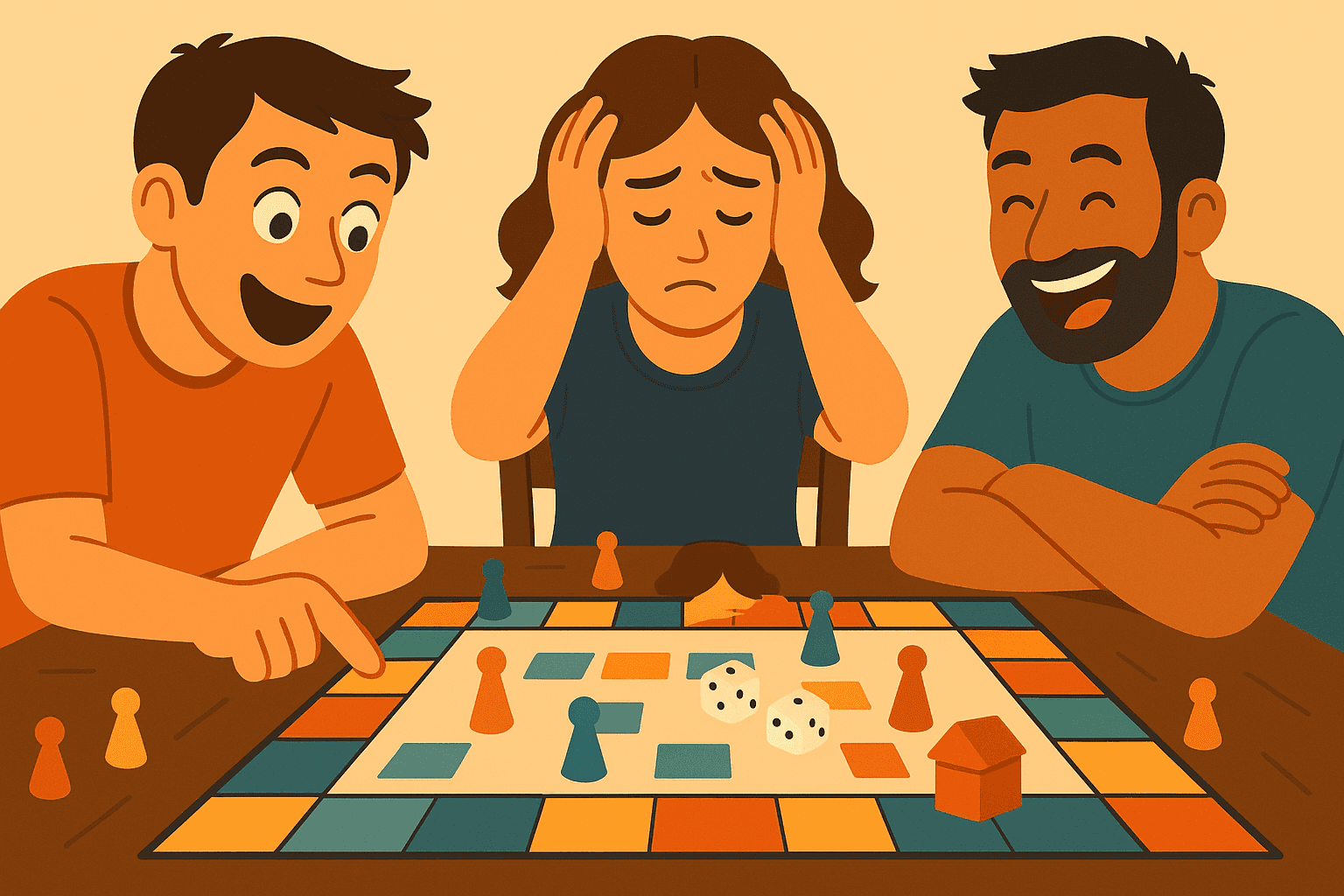
The Psychology of Board Game Addiction – Why We Keep Playing
Board games have a unique power over us. Whether it’s the thrill of victory, the frustration of defeat, or the simple joy of social play, something about these colorful boxes keeps us coming back for more. But what is it, exactly, that makes board games so addictive? Let’s explore the psychology behind why we keep rolling the dice - again and again.
Created By Adam Davis Fernsby
What makes board games so irresistible
Board games combine structure, chance, and achievement in a way that perfectly triggers the brain’s reward system. Each small success, completing a route in Ticket to Ride, expanding your territory in *Risk*, or drawing the perfect card in Uno, releases dopamine, the same chemical that rewards us for eating, exercising, or reaching goals. But the randomness built into most games adds something more: anticipation. Not knowing what comes next keeps us engaged, producing an endless cycle of tension and reward. Psychologists refer to this as a variable reward schedule, the same principle behind slot machines and social media engagement loops. Yet in board games, it’s wrapped in strategy, storytelling, and skill, making it a much healthier and more complex form of stimulation.
The social side of addiction
Beyond the mechanics, board games satisfy one of humanity’s deepest needs: connection. They create a shared emotional experience where laughter, rivalry, and cooperation coexist. In a world increasingly dominated by screens, sitting around a table with real people offers something genuine and grounding. Cooperative games like Pandemic or Forbidden Island reinforce teamwork and communication, while competitive classics such as Catan allow players to express personality and negotiation skills in a playful setting. Studies highlight that such face-to-face interactions can significantly reduce stress and improve mood, suggesting that our so-called “addiction” might actually be emotional nourishment in disguise.
How design tricks your brain
Game designers are, in many ways, behavioral engineers. They use subtle mechanisms to keep players emotionally hooked without crossing into manipulation. Feedback loops are one of the most effective tools, where every action leads to a visible reaction that reinforces engagement. For example, in Carcassonne, placing a tile immediately changes the map; in Catan, gaining a resource after every roll keeps all players involved, even when it’s not their turn. Many games also employ “near-miss” effects, where players come so close to victory that they want to try again. This combination of small wins, near misses, and clear progression taps into what psychologists call the compulsion loop, a sequence of challenge, uncertainty, and reward that our brains find deeply satisfying.
Healthy obsession or problem behavior?
While board game enthusiasm is overwhelmingly positive, the line between passion and compulsion can sometimes blur. Competitive environments, collection habits, or constant replaying for improvement can mirror addictive tendencies. However, unlike digital addictions, board gaming remains largely social, time-limited, and self-regulated. It demands presence and attention, traits often lost in passive entertainment. Recognizing when play turns from fun into frustration is key. If a game starts to dominate your time or cause conflict, it’s worth pausing to reset your relationship with it. After all, the best games are those that leave you wanting more, not needing more.
Why board games are here to stay
In the end, board game “addiction” might be less about compulsion and more about connection. The table is a rare space where we engage our minds, emotions, and social instincts all at once. We compete, collaborate, calculate, and laugh, often within the same minute. As long as humans crave shared experiences and meaningful challenges, the appeal of cardboard worlds and wooden tokens will never fade. Board games don’t just entertain us; they remind us of what it means to play, to think, and to belong.